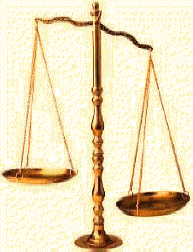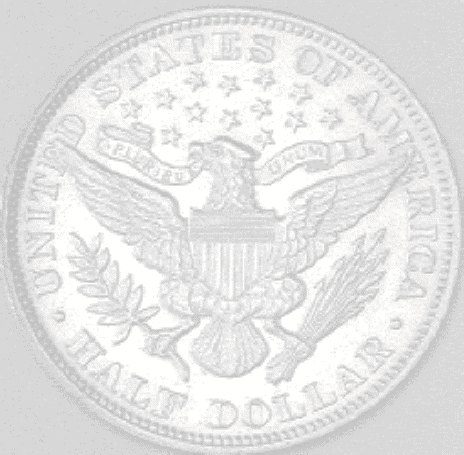
|
|
||
|
|
|
|
|
|
||

-59-
FOR BETTER OR WORSE:
Taxation and Inflation
Benjamin Franklin, you will recall, said Continental Currency was a "tax" because the longer it was held the more of it was needed to make an exchange. All "money" that the first user gets for nothing is inflation. As usual, such tyranny comes to bear heaviest upon those people who are least able to afford it, and the end result is the confiscation of real wealth in accordance with "Gresham's Law." * Mr. White called such currency "confiscation" instead of a "tax" (145-46).
* Gresham's Law states that when two kinds of money differing in value are equally current, the worst drives the better out of circulation. This law, however, is erroneously ascribed to Sir Thomas Gresham who expounded it to Queen Elizabeth in the 16th century. Nicole Oresme, Bishop of Lisieux, France in 1364 understood this principle. As one of the counselors of Charles V, he was asked by the king to write a treatise on coinage and in it he declared,
If the fixed legal ratio of the coins differs from the natural, or market value of the metals, the coin which is underrated entirely disappears from circulation and the coin which is overrated alone remains current. . . .(and) if degraded and debased coin is allowed to circulate along with good and full-weighted coin, all the good coin disappears from circulation, and the base coin alone remains current to the ruin of commerce." (White, p. 466.)
In 1526, Sigismund I, king of Poland, prevailed upon Nicolaus Copernicus to write a treatise on money. In his work, he stated,
It is impossible for good, full-weighted coin and base, and degraded coin to circulate together; all the good coin is hoarded, melted down or exported; and the degraded and debased coin alone remains in circulation.
. . .The coins of gold and silver must bear the same ratio to each other as the metals do in the market. (White, pp. 466-467)
It was Mr. H. D. Macleod, who in 1858, drew attention to Mr. Gresham's exposition of the Law in the 16th century, and who named the Law "Gresham's Law." His commentary upon the Law was found in an old pamphlet, in which it was stated,
When two sorts of coin are current in the same nation, of like value by de-nomination but not intrinsically, that which has the least value will be cur-rent and the other as much as possible, will be hoarded. (White, p. 467)
The Law is simply illustrated.
If the reader were given a Morgan silver "dollar" in change, would he
spend it or keep it? In the words of Professor W. Stanley Jevons, "In
all other matters everybody is led by self-interest to choose the better
and reject the worse." (W. Stanley Jevons. Money and The Mechanism of
Exchange. New York, 1876, p. 80.) The naughtiness of man's depravity
is clearly evidenced.
Professor Jevons further wrote,
Gresham's remarks concerning the inability of good money to drive out bad money only referred to moneys of one kind of metal, but the same principle applies to the relations of all kinds of money, in the same circulation. Gold compared with silver, or silver with copper, or paper compared with gold are subject to the same Law that the relatively cheaper medium of exchange will be retained in circulation and the relatively dearer will disappear. (Jevons, p. 80.)
The Vanderlip Proposal
In late October
1913, Mr. Frank Vanderlip, President of the National Bank of New York,
laid a proposal before the Senate Banking Committee. Mr. Vanderlip
suggested one Federal Reserve Bank that would have 12 branches
throughout the country. While the bank would be able to issue currency,
its assets would entail 50 percent gold held in reserve. The Federal
government would have control of the bank.
The proposal received broad support. Within a few hours
of the introduction of the Federal Reserve Bill, 8 of the 12 members of
the Senate Committee supported the proposal (Johnson, 33).
On December 19th, the Bill was preferred in the Senate
over Mr. Vanderlip's proposal by a vote of 44 to 41. Republican Senator,
Elihu Root of New York wisely called the Bill "financial heresy"
(Johnson, 33). Hours later, the Senate approved it by a vote of 54 to
34. All Democrats supported the bill, while all but 6 Republicans
opposed it (Johnson, 34).
On December 23rd, President Wilson signed the bill into
law. The New York Times called it "the new departure" and spoke
of its "national significance” (Johnson, 41).
The Bill mandated all National Banks join the Federal
Reserve system or forfeit their charter. Each Federal Reserve Bank was
required to maintain a capital of 4,000,000 "dollars" while each member
bank was required to deposit with its district Federal Reserve Bank 6
percent of its capital and surplus (Johnson, 45).
